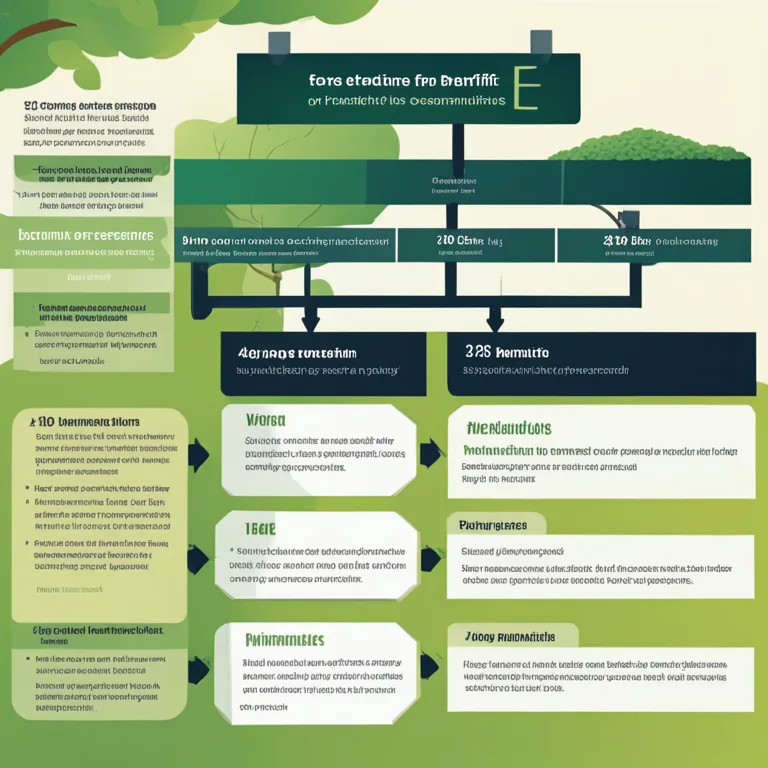
Optimal Duration for Mindfulness Meditation
Discover the ideal length for your mindfulness meditation practice to maintain balance and clarity in your daily life.
article by Hina Kurosawa
Introduction to Mindfulness Meditation
Mindfulness meditation has rooted its significance deeply in the art of maintaining mental equilibrium. As we steer through the intricate web of modern life, the question of the optimal duration for this calming practice often surfaces. Mindfulness is not just a trend; it's a transformative tool that has been embraced across varied demographics for its ability to enhance focus, reduce stress, and cultivate a profound sense of presence.

Starting Small: The Beginner's Guide
For those who are new to the art of meditation, the key is to start with manageable increments. Embarking on lengthy sessions from the outset can be overwhelming, leading to frustration. Experts suggest that beginners should aim for 5 to 10 minutes daily. This modest start helps in cultivating a habit, which is essential for reaping the long-term benefits of mindfulness meditation.

Expanding Practice: Growing Your Meditation
As you become more accustomed to the initial stages, you may instinctively feel an urge to extend your meditation time. Gradual increments are advisable, possibly adding five minutes to your sessions every week or two. It's the quality of mindfulness that's paramount, not necessarily the length of time spent in meditation. A consistent, focused 10-minute session can be more beneficial than a distracted, unfocused 30-minute sit-down.

Individual Needs: Tailoring Your Session Duration
The beauty of mindfulness is in its flexibility to adapt to your personal lifestyle and requirements. Some individuals find solace in brief 15-minute sessions, while others may flourish with a more extended 45-minute practice. Attuning to your body's signals and your mind’s needs is crucial. There is no strict rule book specifying the exact number of minutes required; it hinges on personal preference and daily schedules.

The Science of Meditation: What Research Says
Contemporary research into mindfulness supports varying durations for diverse goals. A study by the University of California in 2024 suggests that 12 to 20 minutes of daily meditation can profoundly enhance concentration and emotional wellbeing. However, mindfulness is a personal journey, and such findings serve as general guidelines rather than prescriptive rules. It's essential to experiment and find your sweet spot.
Consistency Over Duration: The Key to Mindfulness
An often-overlooked aspect of mindfulness practice is the power of consistency. Whether you opt for a brisk 10-minute morning routine or a longer evening session, regularity remains the cornerstone of mindfulness efficacy. A daily practice, even if shorter, conditions the mind more effectively than sporadic, lengthy sessions. The aim is to integrate meditation seamlessly into your lifestyle, making it as habitual as brushing your teeth.
Advanced Mindfulness: Beyond Time Constraints
For seasoned meditators, the concept of time may become secondary to the depth of immersion. In such cases, practitioners might transcend the clock, sometimes meditating for an hour or more, engrossed in the depth of stillness and inner exploration. At this advanced level, mindfulness can expand beyond a timed session, influencing actions and thoughts throughout the day.
Published: 1/8/2024
Modified: 1/8/2024
More predictions
Come back here soon to learn more about yourself and your future


Meditation's Impact on the Limbic System
Explore how meditation can positively influence your emotional and neurological well-being through its effects on the limbic system.


Mindfulness Meditation Benefits for High Schoolers
Discover how mindfulness meditation can help high school students navigate academic pressure, enhance focus, and improve overall wellbeing.


Harmony in Meditation: Fostering Mindfulness and Balance
Discover the art of achieving inner tranquility and equilibrium through mindful meditation practices.